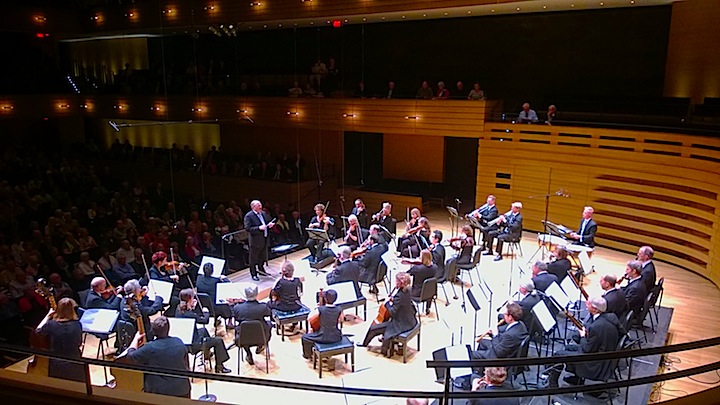
It’s one thing to be told that Ludwig van Beethoven was a genius who revolutionized the music of his day. It’s another to hear it happen right in front of one’s ears — just like at the first performance of Tafelmusik’s season-opening programme at Koerner Hall on Thursday night.
- Classical Music 101: What Does A Conductor Do? - June 17, 2019
- Classical Music 101 | What Does Period Instrument Mean? - May 6, 2019
- CLASSICAL MUSIC 101 | What Does It Mean To Be In Tune? - April 23, 2019
On the bill were Beethoven’s Symphonies Nos 1 & 2, as well as the Overture to the ballet suite The Creatures of Prometheus. The composer, who had recently turned 30 and was beginning to get noticed in Vienna, wrote the three pieces in quick succession.
Both four-movement symphonies follow traditional Classical forms, but, like everything else the composer came up with in a burst of creativity during the first few years of the 19th century, the scores explode with surprises and experiments.
Uncommon instrumental textures, abrupt key changes and exaggerated dynamic markings — these are the nuts and bolts of musical structure that you can’t hum on the way home but still add up to a listening experience that stands out from the ordinary.
We don’t have to debate Beethoven’s genius, but we can debate the ways in which we get to experience it in the modern concert hall.
Modern-instrument orchestras can provide greater dynamic range, at the expense of aural texture. Modern instruments have a more homogeneous timbre. Period instruments, such as those played by the musicians of Tafelmusik, have less consistent sound, they don’t blend as well, and they can’t play as loud — but these are the instruments Beethoven wrote for.
When played with the consummate finesse we heard on Thursday night, the music comes to vivid, vibrant, magnetic life.
Weil comes from the Richard Strauss school of conducting, which insists that the sweat be spilled in the rehearsal hall, not on the podium. He stands there, almost motionless, beating time with all the personality of a metronome. But the musical results were remarkable.
Symphony No. 1 danced lightly on its feet, while Symphony No. 2 progressed with certain dramatic determination.
In the friendly acoustics of Koerner Hall, Weil coaxed as much dynamic range as anyone might want out of the assembled orchestra — all the while maintaining crystalline transparency in the musical textures and constant awareness of the inner dialogues that permeate this rich music.
Beethoven is common currency on our playlists and in our concert halls, but performances like these are truly special — and tell us in a way no textbook or lecture can what makes this composer worth listening to.
The programme repeats every day until Sunday. Catch it while you can.
You’ll find the details here.
John Terauds
- Classical Music 101: What Does A Conductor Do? - June 17, 2019
- Classical Music 101 | What Does Period Instrument Mean? - May 6, 2019
- CLASSICAL MUSIC 101 | What Does It Mean To Be In Tune? - April 23, 2019



